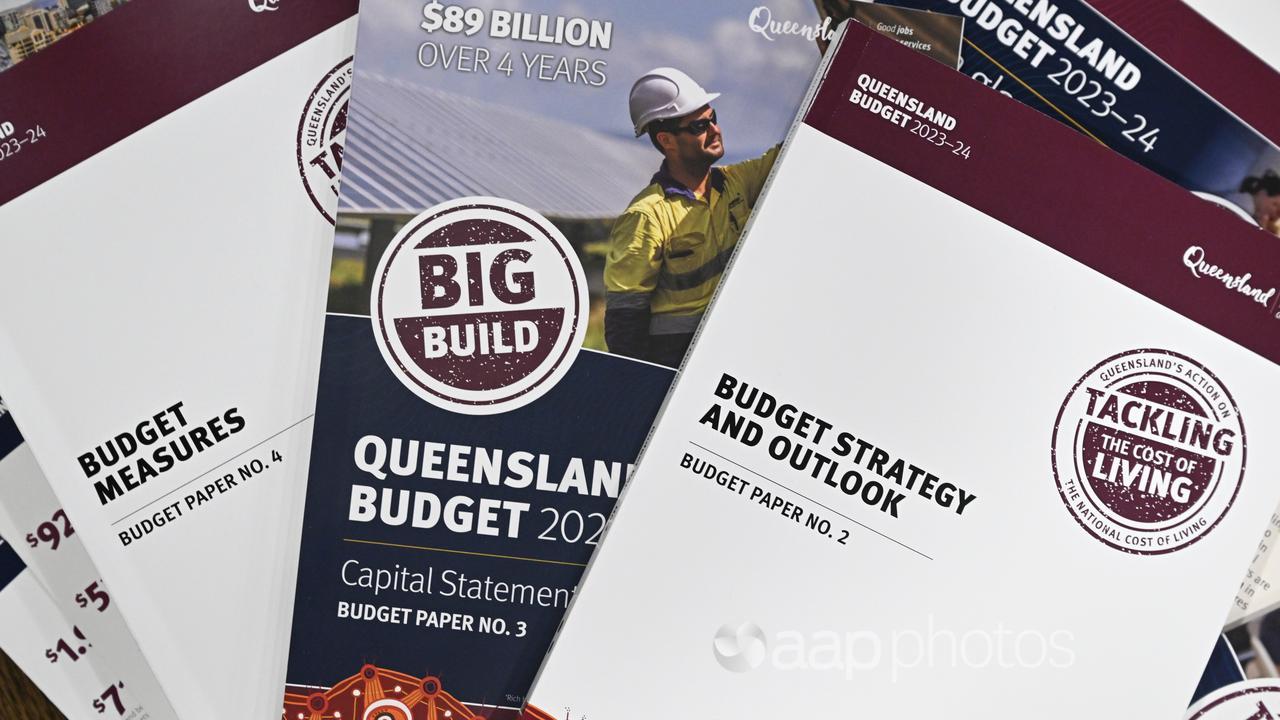Queensland’s former government has rejected claims its “flagrant spending” may trigger the downgrading of the state’s 15-year strong credit rating, instead casting blame on the Liberal National Party’s own budget measures.
S&P Global Ratings confirmed Queensland’s AA+ credit rating – which it has held since 2009 – is at risk if further pressure to the budget is applied.
“Any additional spending, whether on new policies or cost blowouts, could weaken Queensland’s budget and increase debt beyond our expectations,” analyst Anthony Walker said.
“This could pressure our AA+ credit rating on Queensland, especially if additional spending is not offset by savings or revenue increases.”

The ratings agency did not indicate what the credit score could fall to.
The best borrowing rating is AAA, followed by AA+, AA and AA-.
A downgrade in the state’s creditworthiness would lead to higher borrowing costs for projects as Brisbane prepares to host the Olympics in 2032.
The warning comes months after Treasury said in the budget that coal royalties are poised to drop by billions.
Queensland’s credit rating sits at equal-second with South Australia, with Western Australia on top at AAA.
NSW, Tasmania and the ACT have an AA+/Negative rating while Victoria is AA/Stable.
After claiming victory at the October election, the LNP has blamed Labor for the budget predicament.
“We have inherited a weakened position, following the flagrant spending and debt settings of the previous government,” Treasurer David Janetzki will say during a keynote speech in Brisbane on Wednesday.
Treasury briefings show Queensland’s debt burden is growing which may lead to a credit rating downgrade.
Mr Janetzki said S&P Global warned him that if the state’s financial position continued to decline it would “increase pressure on key credit rating metrics, with deepening fiscal deficits translating into continuing strong growth in debt levels”.

However, the Labor opposition rubbished the treasurer’s accusations, saying the budget and credit rating was stable during its nine years in power that ended on October 26.
“Ratings agencies right before the election went through Queensland’s budget books, top to bottom, left to right, up and down, they put us on a stable outlook. which means they did not see any danger of a credit downgrade under the Labor government,” Deputy Opposition Leader Cameron Dick told reporters.
“The only thing that’s changed since then is a new LNP government that promised $20 billion in election commitments and put forward an absolutely cooked costings document.”
Mr Dick conceded if the credit rating was downgraded it could mean higher borrowing costs resulting in less infrastructure and fewer services for Queenslanders.
Mr Janetzki has committed to stabilising what he says is an out-of-control financial position and securing the AA+ credit rating, however briefings have revealed that might not be tenable.
“I didn’t want to be a treasurer who has a ratings downgrade on my watch … however, knowing what we know now, I am in an unenviable position where that could well be the case,” Mr Janetzki said.
Mr Janetzki blamed the declining coal royalty income that’s set to fall from $10 billion in 2023-24 to $6 billion in 2024-25, a GST shortfall and inherited project cost blowouts for the added pressure on the budget and likelihood of a credit rating downgrade.
But with a “calm and methodical” approach to the budget, Mr Janetzki promised to get debt under control without cuts to the public service.




















